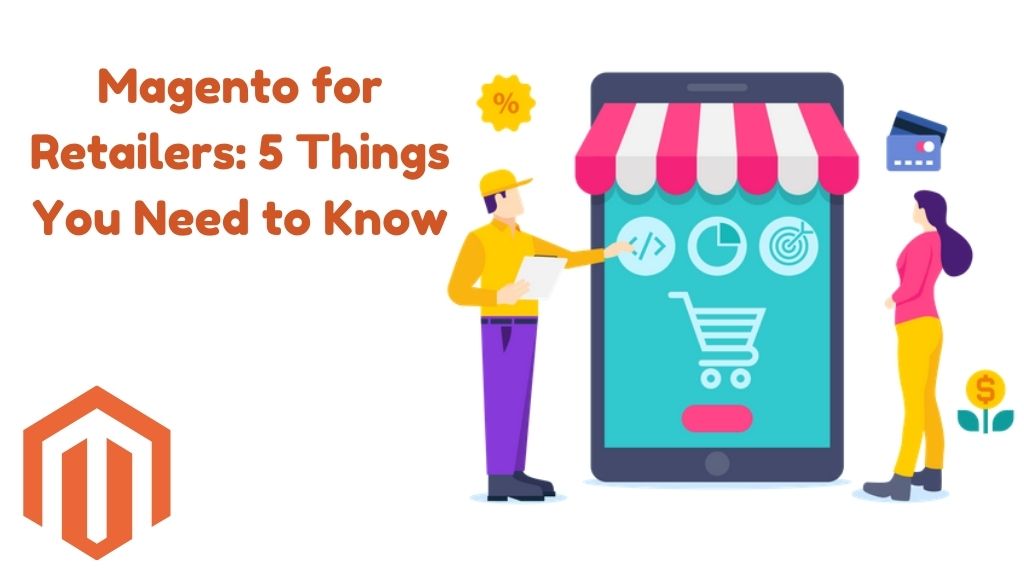Magento for retailers is among the world’s leading eCommerce platforms. It powers an incredible number of sites, from small family businesses to Fortune 500 companies. But just because it’s a popular platform doesn’t mean you should rush into whether or not it makes sense for your business without being familiar with its capabilities, challenges, and limitations.
In this post, we outline five key things to understand before jumping in: the price tag, the skill level needed to use it, how you can customize Magento, who Magento is best for, and what kind of company will be well-served by it. Magento is a powerful eCommerce platform, but it’s not a turnkey solution. This might sound obvious, but it’s really important to understand where the complexity comes in with Magento before deciding if it’s right for your business.
Know the platform
Magento for retailers has hundreds of different configurations and options (which can be daunting even for people who know their way around software). It requires specialized knowledge of how to customize extensions and build out features so that they integrate with the rest of the platform. (It helps if you know how to code.) Magento for retailers also requires some measure of resourcefulness, since there isn’t always a clear path forward when you run into snags or tricky problems. (You may need to dig around on forums or reach out directly to the vendor you purchased the extension from.)
Understand the requirements
The server requirements are also pretty hefty. Magento for retailers with high sales volume requires a dedicated server (or at least a separate domain) since it relies on a PHP/MySQL setup (instead of a static site generator, like WordPress). It also requires a ton of memory, which means you might end up renting some serious hardware.
Don’t DIY, hire a professional developer
The skills and knowledge needed for customization are beyond the scope of many small business owners. That’s not meant to dissuade you from using Magento – nothing is stopping you to hire Magento developers and designers who can work with it. But if you’re not in a position to do that, you might need to skip or find a ready to sell solution like MageBoom.
Magento doesn’t lend itself well to customization by business owners. That said, it does have robust APIs that can be used for custom development and customizations. So if you don’t have the resources to hire developers on your own, you can certainly work with an expert who knows how to integrate with Magento – or even better, outsource it to a third-party service provider who does. Professional Magento developers like Webiators can do this for you at a reasonable price.
The scope of development
Most small businesses will find customization and high-level integrations challenging. You may need an expansion of existing skill sets and/or new hires in order to keep up with expanding functionality. There are plenty of ways to work with Magento (it’s one of the most programmable software platforms around). But there are some things you have to be mindful of if you don’t want to waste time and money.
Keep your project’s vision clear
With plugins, for example, you have to worry about whether the plugin author has updated it or whether it will break if Magento receives an update. And even if your app works perfectly fine now (or ever), it might not work later. So it can be risky to do anything beyond basic functionality without testing on every single possible combination of extensions and updates first.
Over to you
Magento for retailers is the right fit if you:
- Want a highly customizable eCommerce platform
- Want to be able to integrate with other platforms (e.g., your POS system)
- Need some level of ease of use and a low barrier to entry for new users (and users with limited technical skills)
- Open to hire professional Magento developers (and you can afford it)
The fact is that most small brick-and-mortar retailers don’t need much complexity from their software. When your business is relatively small, you should be expecting a lot of time using your platform and attention to detail. Magento for retailers can do wonders but it should be noted that with an experienced development company, you can grow your business better by shifting your focus to things that matter the most.
To know more, visit https://webiators.com/
Explore More opportunities for your Magento 2 store at Webiators Store



